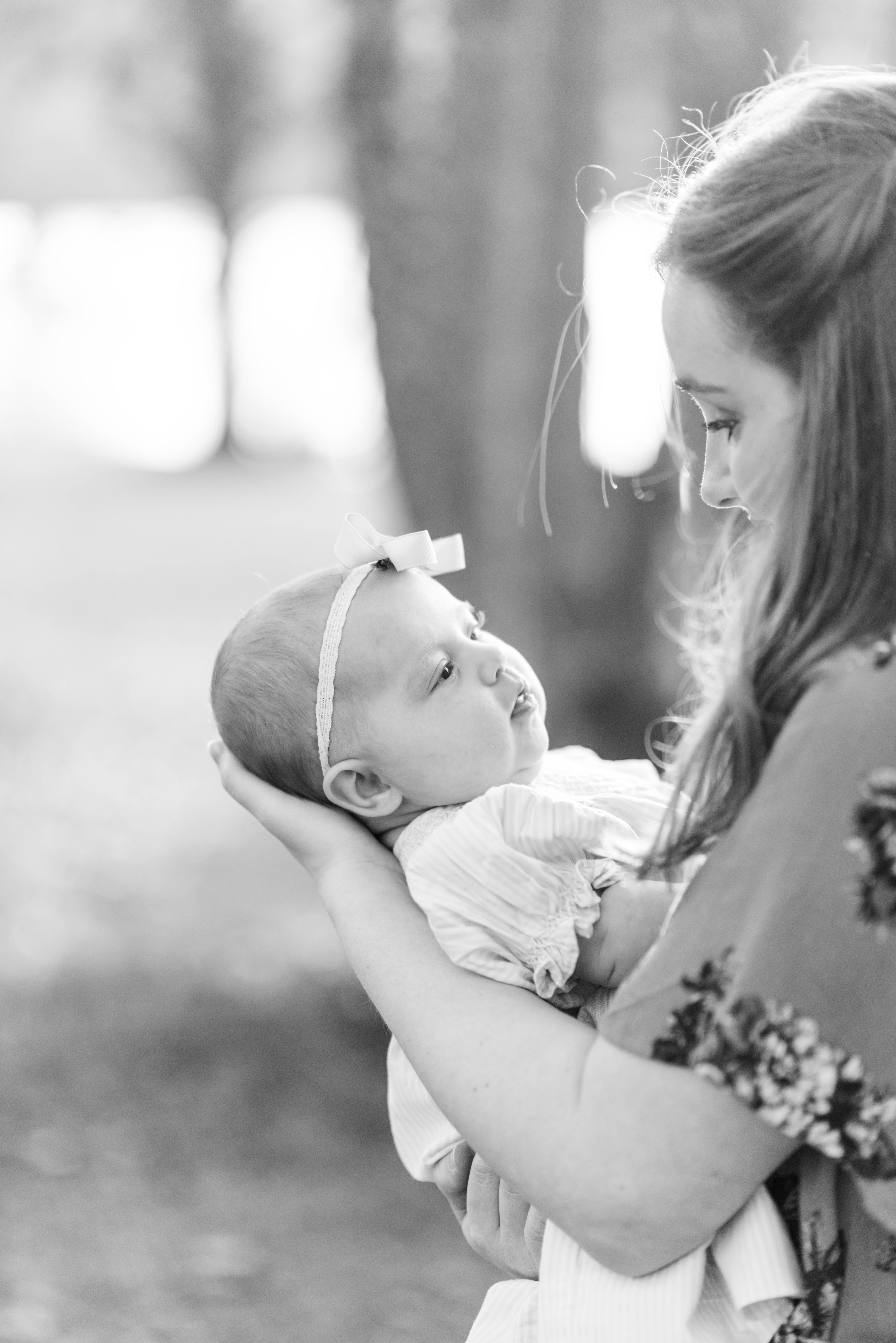As moms, we feel guilty for so many things that we can’t control, that aren’t our fault, or that aren’t even real concerns. We feel guilty for letting the laundry go a few extra days. For ordering pizza rather than cooking a home-made meal. We feel guilty for not losing our baby weight the day after we deliver.
Too many women compare themselves to fictional mothers — the Stepford Wives and June Cleavers. In doing so, they set unrealistic standards for themselves, and then experience intense guilt when they don’t meet these standards.
There are also feelings of inadequacy caused by conflicting parenting suggestions. Should your baby always sleep on their back? What if they aren’t eating? Does that mean it’s okay to use formula?
Remember, no parent is perfect. You don’t need to compare yourself to others who appear to have it all together. You already do the best you can, so trust your instincts and ask for help when you need it.
Postpartum Depression
“Baby blues” and “mom guilt” are common states among those who’ve just given birth. Postpartum depression, on the other hand, is much more concerning and requires professional help for your sake and the sake of your new baby.
When you suffer from postpartum depression, these feelings of guilt can intensify. It’s easy to tell someone their guilt isn’t rational. That they are doing their best, and these feelings are in part due to lack of sleep and increases in hormones. But that doesn’t help the feelings go away.
Some signs of postpartum depression include:
- Feelings of apathy or disinterest in your baby
- Worrying that you may hurt your baby
- Loss of pleasure, energy, and motivation
- Feelings of worthlessness and failure
- Loss of appetite or binge eating
- Either sleeping more or less than recommended by your doctor
- Thoughts of death or suicide
If you are experiencing any one or multiple symptoms of postpartum depression, seek help. You shouldn’t go through these feelings alone. Rather, you need support to help guide you through. This support system can offer you a space to talk about your feelings, give you time to yourself to cope, or offer you medicine or psychotherapy.
Remember, take care of yourself, so you can give your baby a safe and loving home.
